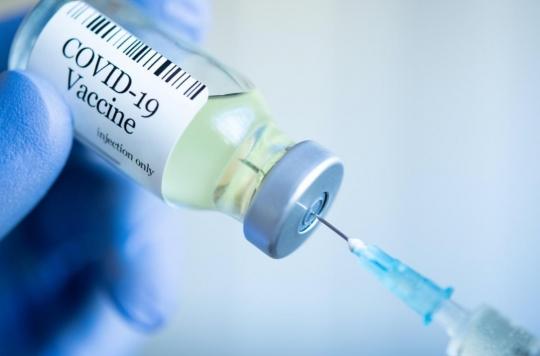For people under the age of 65, delaying the injection of the second dose could reduce the mortality rate.

- In December 2020, the United Kingdom also chose to extend the time between the two doses of vaccine.
- According to a study published in February 2021, a single dose of the Pfizer vaccine confers 90% immunity, 21 days after the injection.
- All French people over the age of 18 can be vaccinated since May 12.
Are you late for your second vaccine injection? Don’t worry, this could be good news. In the British Medical Journal, American researchers show that delaying the second dose for people under 65 could reduce the mortality rate by 20%. Since the beginning of the Covid-19 epidemic, scientists around the world have been talking about herd immunity: the threshold at which the epidemic will end because enough people will have contracted the virus or will have been vaccinated. However, vaccination takes time, and the longer it takes, the greater the risk that vaccine-resistant mutations will develop. To speed up the administration of the precious serum, several scientists are campaigning to delay the injection of the second dose. In this study, the American researchers show that this can be a profitable strategy on two conditions: if the vaccine is at least 80% effective and if vaccination rates reach 0.1 to 0.3% of the population per day.
Fewer hospitalizations and deaths
They created models to establish different infectious scenarios over a six-month period by varying vaccine efficacy rates and administration rates. “Depending on specific conditions, a decrease in deaths, infections and hospital admissions may be achieved when the second dose of the vaccine is delayed“, they conclude. This could represent between 26 and 27% fewer deaths per 100,000 inhabitants.”Policy makers need to assess their local vaccination rates and assess the benefits of increasing them if second dose delays were extendedthey claim, compared to the risks associated with the uncertainty of this strategy.“
What are the deadlines in France?
In France, health authorities recommend waiting six weeks between the two injections for the Pfizer and Moderna vaccines, and twelve weeks for AstraZeneca. These deadlines were extended to mid-April in order to increase the rate of vaccination and thus allow as many people as possible to receive a first dose. I’medical academy recommends going further and suggests “delaying the date of the second injection of messenger RNA vaccine by six months in immunocompetent people under the age of 55“. For people who have been infected with the virus, she advises waiting six months after the positive test to administer the first injection. For the Academy, these leads are a way of achieving collective immunity more quickly.
From the first injections on April 14, the 2 doses Pfizer and Moderna will be spaced 42 days apart.
— Olivier Veran (@olivierveran) April 11, 2021

.















